By: Jasmine Cochran
In 1863, President Abraham Lincoln signed the Emancipation Proclamation, an executive order that essentially started the process of ending slavery in America. The 13th Amendment passed in 1865, sealing the deal and making it illegal to own slaves in America.
Black people were beginning to make this country their new home, even though, up to that point, it had only brought them terror. However, there was still much work to be done.
America prides itself on its military power and success, and Black people wanted to contribute to its success in the most prestigious ranks. Although we could fight in wars before World War II, it wasn’t until then that Black people were allowed to become pilots.
Tuskegee airmen vs. Muhammad Ali
The Tuskegee airmen were the first black pilots in the United States military. Earning over 150 Distinguished Flying Crosses for their achievements, they are celebrated in Black History Month tributes and conscious high school classrooms nationwide. Their efforts helped progress the military towards integration, which took place in 1948. The Tuskegee airmen are a clear source of pride within the Black community.
However, as the world teeters on the brink of World War III, many Black people are beginning to ask the question, “Should we be so eager and proud to fight for a country that continues to prove it doesn’t view us as one of its own?”
There are those who echo the sentiments of Muhammad Ali and refuse to fight for a country that’s terrorized them since the boats landed and against a people who haven’t offended them personally, at all. On the other hand, there is the camp who looks at the accomplishments of the Tuskegee airmen and feels as though, through their efforts, our nation began to see our potential in military spaces. So let’s take a look at the pros and cons.
Pros of joining the armed forces:
- By serving, college becomes a viable possibility instead of a financial impossibility. Money for college in exchange for a few years of service is a much more attractive option than paying back student loans for half your life, and if you can’t get a scholarship for academics or athletics, the military option begins to look very attractive.
- You can build a career, and an honorable one at that. And even if you choose to do a short stint in the military, there are more and more programs becoming available that push for companies to hire men and women who have served in the armed forces. Either way, serving can set you on a path to professional stability success.
- When the military recruited me, they drove home the fact that I could travel the world, and that I’d have the opportunity to be stationed in a land of my choice. For a spirit of wanderlust, that sounded appealing.
Cons of joining the armed forces:
- You fight for rights that your own country would vehemently object to your exercising. Case in point: Colin Kaepernick.
- You fight for freedom and justice that is promised to you in your homeland, but you may never see that freedom and justice. Consider all the law enforcement officers who have killed black people and will never be held accountable for it. Consider the constitutional right Americans hold for a speedy trial of our peers, but the fact that over 90% of Black inmates never see that trial.
- You fight against the enemy, but at home, you are the enemy. The government and media have done a fantastic job of creating personas for us, and they’re not positive. The collective American psyche, and dare I say, the world, fears us. It’s the excuse cops give for pulling the trigger so quickly. It’s the reason people grab their children and purses when we walk by. In the U.S.A., we are the enemy, no matter how loudly we scream that we are not.
So what do you say? Do you think Black Americans should fight for this nation, or do you fail to see a logical justification for such a decision?
Read the original story here.
Jasmine believes in love, presence, and justice. She also believes in communication, so leave a comment!





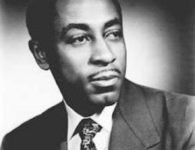

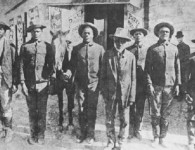

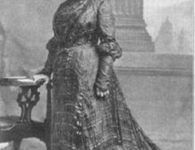

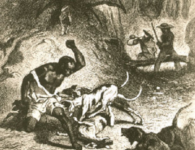

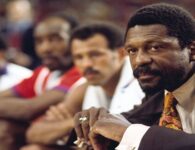

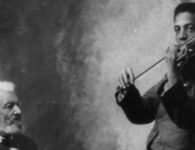

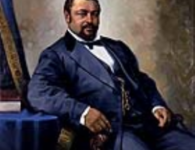
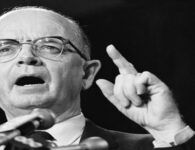
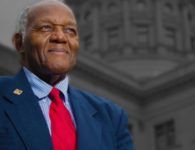

1 Comment
Allow me to state up front that I am an honorably discharged US Marine. I served 4 years on active duty and never saw any combat during that time but my expectation going in was to be sent to Beirut where Marines were under fire at the time of my enlistment.
All that said, I have the utmost respect, appreciation, and admiration for Muhammad Ali. Other than my father there is probably no one I revere more. It has been said, and I very much believe, that there are many ways in which one can serve their country. Our ancestors did it as slaves. Some as civil rights participants and others as military personnel though that list is hardly complete. No form of service is inherently or necessarily superior to another. I would argue that many who have not served in uniform or in any ‘official’ capacity have provided a greater lift and more value to both the nation as a whole and our people than those of us who donned a uniform.
I don’t think there’s anything that angers or depresses me more at present than hearing about people (particularly of color) who are needlessly and senselessly killed at the hands of government agents (the police). As stated in the article, we are (viewed as) the enemy. And surely there is no justice in the deaths nor the lack of recriminations for the parties committing these atrocities and greater for the institutions that so govern and/or permit. In kind, I have great respect for people like Colin Kaepernick and others who kneel or protest longstanding and ongoing injustice.
As a Marine I will always stand for the anthem but as a black man I support all those who protest the treatment we receive. Each has its own merit and neither should be viewed as wrong.
I can tell you that other than my family upbringing there is nothing that has formed or benefited me more than my time in the Marines. I learned things (discipline, time management, perseverance, sacrifice, overcoming adversity, etc. ) there that I don’t believe I could have gotten anywhere else. The friends I made while serving I consider my most treasured as a group if not individually in all cases. The professional training I received in the Marines launched a very successful career that I wouldn’t have had otherwise. As such, I can only see benefit to those who choose to serve in this manner while taking advantage of all it has to offer. It’s not cure-all. It’s still up to the individual to maximize their potential through options provided by service in the military.
I KNOW with 1,000% certainty that I and others so given have affected if not outright changed the opinions and attitudes of white people I’ve come in contact with in the military and elsewhere. This interaction is essential as it broadens the perspective of the previously unlearned. I would offer were it not for the good face that so many people of color have put forward that there would have been no President Obama.
Though I understand the legitimate and dire issues so wrongly visited upon a people over and over again, being ONLY angry and/or militant isn’t going to solve anything. There is certainly a place for all of that and I struggle with it as well. But the fact remains that this IS our country whether the country accepts us or not. Our predicament makes us more American than those not so encumbered. They take for granted that which is largely unearned.
We need anger, protest, and to continue the struggle. But so too will military service benefit us personally and collectively.